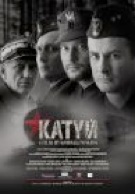Rachel Margolis, according to writer Dovid Katz, is the most tragic survivor of the holocaust. Her crime, he writes, is surviving the holocaust in Lithuania as a partisan with the Soviets. Apparently, she is now accused of war crimes by the Lithuanian government.
To read the full article, go to the link here.
I don’t know any of the details of her story, but Dovid Katz, whom I know from working together in the SLS writing program in Vilnius last summer, says her case is one of obfuscation by Lithuania, where the holocaust is not denied, but a parallel or equivalency is drawn between Soviet and Nazi crimes.

This is an uneasy subject for me, to say the least. I mentioned it in the post I wrote on Februry 14 about the documentary film, The Soviet Story. It is uneasy because the Nazis and their local collaborators perpetrated the holocaust. What Jews survived, a tiny number did so only because of the Soviet resistance and Soviet victory over the Nazis.
But the Soviets in turn killed or deported many tens of thousands after the war.
On the one hand, any attempt to minimize the holocaust is terrible. On the other hand, other victims want their sufferings to be known too. Does the one cancel out the other? I don’t think so.
A friend of mine, The Canadian writer David Bezmozgis, and I got into a discussion about this issue. I said to him that people need to know everything. In Polish terms, one must know about Auschwitz and one must know about Katyn. In my experience, hardly anyone knows about Katyn, which is just one of the more prominent stories of crimes under the Soviets.
But to imagine that we’re all going to get along and understand each other’s sufferings is a vain hope. I guess my own take on this is never to minimize what happened to others, so no holocaust obfuscation can be permitted. On the other hand, hardly anyone I know has any idea of the partisan war in Eastern Europe after 1944, and hardly anyone knows much more than the faint outlines of the sufferings of people there after the war. That’s the story I want to tell.
But I want to keep listening to the story of others, in this case the story of the holocaust in Lithuania, which remains painful, but which must be probed again and again to work out the details of the crimes, the depth of the sufferings, while never imagining that understanding will be enough and that some sort of “closure” must happen.